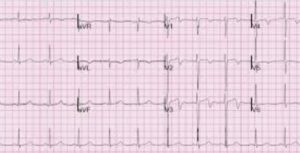 Understanding which medical disability conditions are most commonly approved by the Social Security Administration (SSA) can help set expectations and guide the application process when you are applying for Social Security Disability (SSD) benefits. The SSA evaluates claims based on the severity of your medical condition and how it limits your ability to work. Although each claim is considered independently of others and on a case-by-case basis, there are specific conditions that are approved more frequently than others due to the medical evidence presented and the clear impact on one’s ability to work.
Understanding which medical disability conditions are most commonly approved by the Social Security Administration (SSA) can help set expectations and guide the application process when you are applying for Social Security Disability (SSD) benefits. The SSA evaluates claims based on the severity of your medical condition and how it limits your ability to work. Although each claim is considered independently of others and on a case-by-case basis, there are specific conditions that are approved more frequently than others due to the medical evidence presented and the clear impact on one’s ability to work.
What Makes a Condition More Likely to Be Approved?
Before we talk about specific conditions, it is important to know what the SSA looks for:
- Meets a Listing: The condition matches one on the SSA’s Listing of Impairments (Blue Book).
- Severity: The condition must be severe enough to significantly interfere with basic work activities.
- Duration: The condition or impairment must have lasted, or be expected to last, at least 12 months or sadly, result in death.
- Medical Evidence: Consistent documentation, including diagnostics, treatment history, and physician evaluations.
Most Commonly Approved Conditions
Here are some of the most frequently approved conditions for SSD:
MD includes conditions such as chronic back pain, herniated discs, arthritis, and other joint or bone issues. Conditions like degenerative disc disease or severe osteoarthritis often qualify, especially if mobility is severely impaired or if surgery has failed to improve function.
Mental illnesses account for a significant portion of approvals. These include:
- Major depressive disorder
- Bipolar disorder
- Schizophrenia
- Post-traumatic stress disorder (PTSD)
- Autism spectrum disorder (especially in children)
If a mental health condition leads to poor concentration, lack of motivation, or inability to maintain employment, it may qualify.
-
Neurological Disorders
Neurological disorders are conditions that affect the brain or nervous system, and they are often approved to receive disability benefits. Some of these conditions include:
- Epilepsy
- Multiple sclerosis (MS)
- Parkinson’s disease
- Cerebral palsy
- Stroke with long-term effects
Documentation from your physician and/or specialist showing progressive or unmanageable symptoms will help strengthen your claim(s).
 Heart-related diseases can also be disabling, particularly:
Heart-related diseases can also be disabling, particularly:
- Congestive heart failure
- Coronary artery disease
- Chronic arrhythmias
- Peripheral artery disease
Medical records or documents that show a history of heart attacks, surgeries, and exertion limitations are key proof points.
-
Cancer
Many forms of cancer, especially those that are inoperable, recurrent, or terminal, are eligible for fast-track consideration under the SSA’s Compassionate Allowances program. Common cancers that may be approved include:
- Lung cancer
- Pancreatic cancer
- Brain tumors
- Leukemia
- Lymphoma
 For these disorders, the SSA will require evidence such as pulmonary function tests as well as oxygen therapy usage. These disorders may include:
For these disorders, the SSA will require evidence such as pulmonary function tests as well as oxygen therapy usage. These disorders may include:
- Chronic obstructive pulmonary disease (COPD)
- Asthma (severe and persistent)
- Pulmonary fibrosis
- Cystic fibrosis
Disorders where the immune system attacks the body often result in disability benefits:
- Lupus
- Rheumatoid arthritis
- Crohn’s disease
- Multiple sclerosis
- Scleroderma
These are often unpredictable and difficult to manage, which makes sustaining work challenging.
Approval is About Function, Not Just Diagnosis
A diagnosis alone is rarely enough to qualify you for disability benefits. The key to a successful claim is demonstrating how your condition limits your ability to work consistently. This is best done through detailed medical records, a consistent treatment history, and sometimes, third-party testimonies or functional capacity evaluations.
If you’re preparing to apply for disability benefits, consider setting up a free consultation with the legal team at Parmele Disability Advocates. With our 150 combined years of disability experience, our team has the competency and experience to help you receive the benefits you deserve. Schedule your no-cost consultation by calling 866-889-2570.
Parmele Disability Advocates. Disability advocacy for all.
